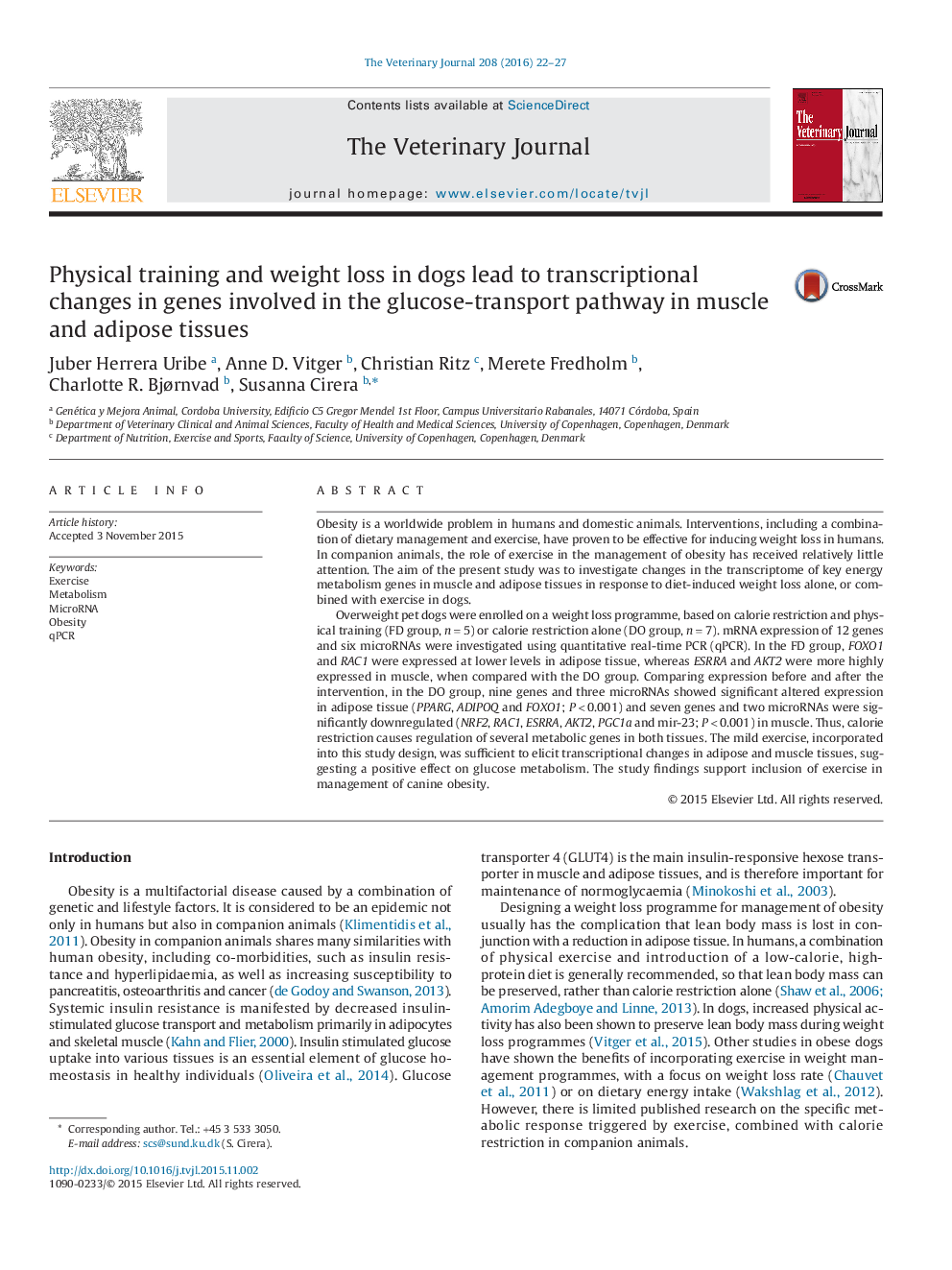| Article ID | Journal | Published Year | Pages | File Type |
|---|---|---|---|---|
| 2463745 | The Veterinary Journal | 2016 | 6 Pages |
•The effect of weight loss induced by exercise and/or diet was investigated in dogs.•mRNA and microRNAs involved in energy metabolism were assessed.•Mild exercise induces transcriptional changes in muscle and adipose tissues.•Diet-induced weight loss alters expression of metabolism genes.•Exercise and diet have a positive effect on metabolism for canine obesity management.
Obesity is a worldwide problem in humans and domestic animals. Interventions, including a combination of dietary management and exercise, have proven to be effective for inducing weight loss in humans. In companion animals, the role of exercise in the management of obesity has received relatively little attention. The aim of the present study was to investigate changes in the transcriptome of key energy metabolism genes in muscle and adipose tissues in response to diet-induced weight loss alone, or combined with exercise in dogs.Overweight pet dogs were enrolled on a weight loss programme, based on calorie restriction and physical training (FD group, n = 5) or calorie restriction alone (DO group, n = 7). mRNA expression of 12 genes and six microRNAs were investigated using quantitative real-time PCR (qPCR). In the FD group, FOXO1 and RAC1 were expressed at lower levels in adipose tissue, whereas ESRRA and AKT2 were more highly expressed in muscle, when compared with the DO group. Comparing expression before and after the intervention, in the DO group, nine genes and three microRNAs showed significant altered expression in adipose tissue (PPARG, ADIPOQ and FOXO1; P < 0.001) and seven genes and two microRNAs were significantly downregulated (NRF2, RAC1, ESRRA, AKT2, PGC1a and mir-23; P < 0.001) in muscle. Thus, calorie restriction causes regulation of several metabolic genes in both tissues. The mild exercise, incorporated into this study design, was sufficient to elicit transcriptional changes in adipose and muscle tissues, suggesting a positive effect on glucose metabolism. The study findings support inclusion of exercise in management of canine obesity.
